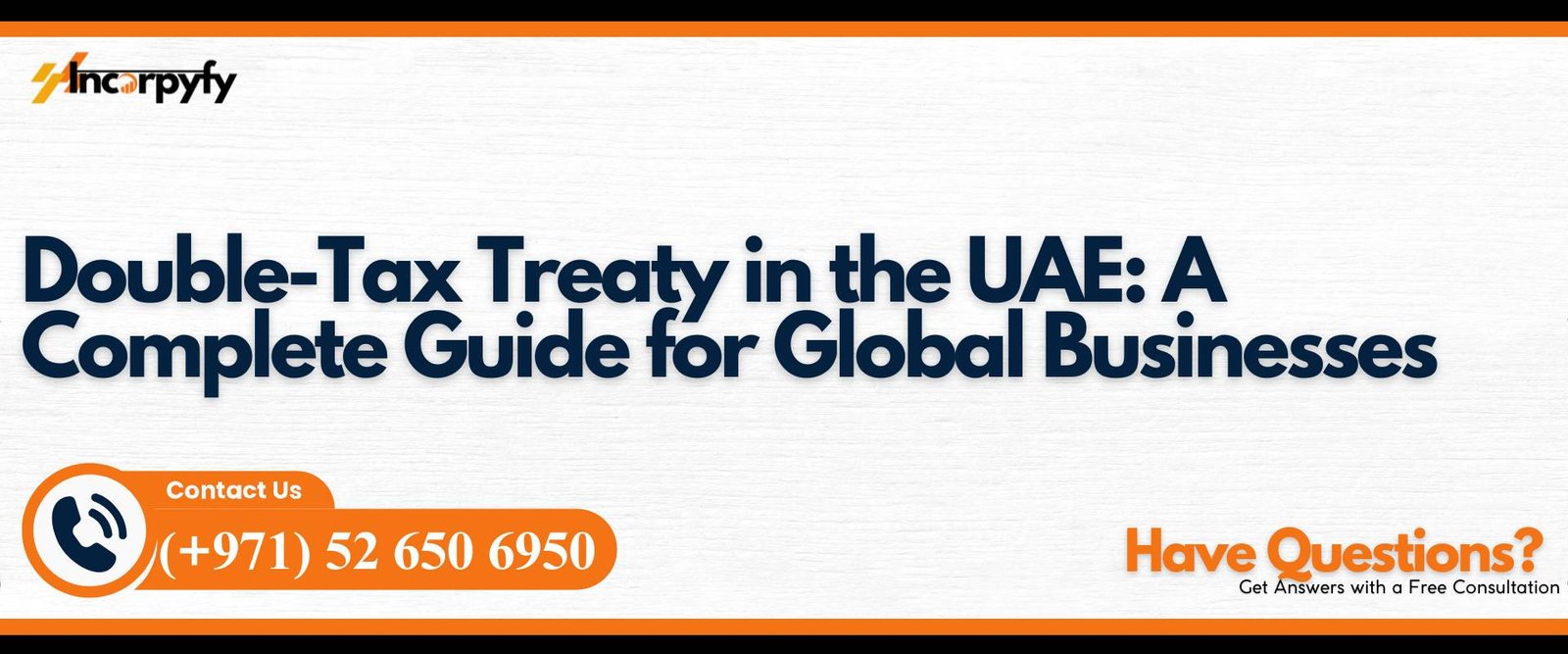
The United Arab Emirates (UAE) is a top destination for entrepreneurs, foreign investors, and multinational companies. One of the key attractions is the country’s extensive Double-Tax Treaty (DTT) network, designed to prevent double taxation on income, profits, and other cross-border financial activities.
This guide explains how Double-Tax Treaties in the UAE work, who can benefit, and how to make the most of these agreements legally and efficiently.
What Is a Double-Tax Treaty?
A Double-Tax Treaty is an agreement between two countries that prevents the same income from being taxed twice. These treaties set clear rules about how income, such as dividends, royalties, interest, and capital gains, should be taxed between two jurisdictions.
Why Double-Tax Agreements Matter
- Avoid double taxation for businesses and individuals.
- Provide certainty and clarity in tax treatment across borders.
- Support international trade, investment, and economic cooperation.
- Promote foreign direct investment (FDI) by offering tax stability.
UAE’s Global Double-Tax Treaty Network
The UAE has signed over 140 Double-Taxation Agreements with countries around the world. These include India, China, France, Germany, United Kingdom, Singapore, Italy, and many others.
Key Features of UAE’s Tax Treaties
- Reduced or zero withholding tax on dividends, interest, and royalties.
- Access to legal protections and fair treatment of income.
- Recognition of UAE tax residency globally.
- Easier capital repatriation for foreign companies.
Who Can Use the UAE’s Double-Tax Treaties?
To use the benefits of a UAE Double-Tax Treaty, an entity must be considered a UAE tax resident. This includes both individuals and businesses that meet specific requirements.
Eligible Entities Include:
- Mainland companies registered in the UAE.
- Free Zone companies with economic substance.
- Branches of foreign companies operating in the UAE.
- Individuals with valid residency and minimum physical presence.
How to Access UAE DTT Benefits
To claim DTT benefits, you must apply for a Tax Residency Certificate (TRC) from the UAE Federal Tax Authority (FTA). This certificate proves your UAE tax residency and allows you to apply treaty benefits in other countries.
Documents Required for TRC:
- Trade license and company documents.
- Lease agreement and utility bills.
- Bank statements (6 months).
- Audited financial statements (optional but recommended).
- Passport copy and visa page (for individuals).
Once approved, the TRC is valid for 12 months and must be renewed yearly.
Examples of Business Scenarios Using UAE DTTs
Here are some real-world ways businesses benefit from UAE Double-Tax Treaties. Whether you’re running a consultancy, trading goods, or managing global investments, these agreements help lower your tax bills, avoid legal complications, and make cross-border operations smoother and more profitable when structured properly under the UAE tax system.
Cross-Border Services
A UAE-based IT consultancy providing services to clients in Europe or Asia can reduce withholding tax deductions in the client’s country.
Import-Export Businesses
Companies trading goods globally can benefit from reduced customs duties and avoid tax duplication in partner countries.
Holding Companies
Firms structured to hold shares in foreign subsidiaries can receive dividends with reduced or zero tax in countries where DTTs apply.
Double-Tax Treaties & UAE Corporate Tax (2023 Update)
From June 2023, the UAE introduced a 9% corporate tax on profits above AED 375,000. However, Double-Tax Treaties can help companies avoid paying tax twice on the same income.
What You Need to Know:
- Tax treaties can reduce or eliminate tax in the other country.
- A valid Tax Residency Certificate is crucial to claim treaty benefits.
- Businesses must maintain economic substance in the UAE.
- DTTs offer protection from foreign tax authorities questioning the source of income.
DTT Application for Free Zone Companies
Free Zone entities may enjoy 0% corporate tax, but they still need to show real business operations to access treaty benefits. Simply having a license is not enough.
Requirements Include:
- A physical office space in the Free Zone.
- Local staff or operational activity.
- Active bank account and financial records.
- A valid TRC issued by the FTA.
Challenges and Misunderstandings
While Double-Tax Treaties in the UAE offer major advantages, misuse or misunderstanding can lead to tax penalties abroad.
Avoid These Mistakes:
- Using a shell company without substance.
- Failing to renew TRC annually.
- Assuming all Free Zone companies qualify automatically.
- Ignoring local tax laws of the other country.
Conclusion
The Double-Tax Treaty in the UAE is a powerful advantage for global entrepreneurs and companies looking to reduce tax burdens and grow internationally. With over 140 tax treaties, a low-tax environment, and investor-friendly regulations, the UAE remains a strategic location for global expansion.
If you’re planning to set up your business and want to use these benefits legally and effectively, Incorpyfy, a trusted business setup company in Dubai, is here to guide you through the process of company formation, tax residency, and DTT planning—from start to success.
Frequently Asked Questions (FAQs)
What is the main benefit of a Double-Tax Treaty in the UAE?
It helps businesses and individuals avoid paying tax on the same income in both the UAE and another country.
How many countries has the UAE signed DTTs with?
The UAE has signed more than 140 Double-Tax Treaties with countries across the globe.
Do Free Zone companies get DTT benefits?
Yes, but only if they have real substance, such as office space and active operations, and a valid Tax Residency Certificate.
How do I apply for a Tax Residency Certificate in the UAE?
You can apply through the Federal Tax Authority (FTA) portal by submitting relevant documents and paying the required fee.
Does the UAE have a Double-Tax Treaty with the USA?
No. As of now, the UAE does not have a DTT with the United States, but US investors can still benefit from UAE’s tax laws.
Can individuals benefit from UAE DTTs?
Yes. Individuals who are UAE residents and meet the physical presence and residency requirements can apply for treaty benefits.
How long is the Tax Residency Certificate valid?
The TRC is valid for one year and must be renewed annually to continue receiving DTT benefits.
Are all UAE businesses automatically covered by DTTs?
No. Only UAE tax-resident businesses with real substance and a TRC can claim treaty benefits.






